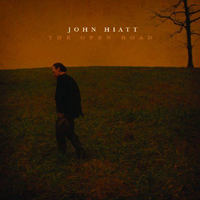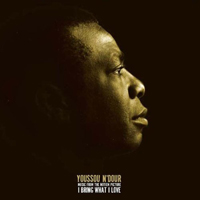From another posthumous Johnny Cash album to the latest offering from Youssou N’Dour, we review this week’s latest releases.
Fucked Up: Couple Tracks (Just Music) 
If you have ever taken one look at Green Day and Blink 182 and asked, “What happened to punk?”, this album is for you. Fucked Up hail from Toronto and this double-disc compilation collects 25 of the band’s thunderous seven-singles recorded between 2002 and 2009. The band, who mostly hold down day jobs ranging from food co-op staffer to film producer, have tried to keep their identities secret, somewhat successfully. The compilation kicks off with the band’s 2002 single No Pasaran, a roaring hardcore track that sits somewhere between mid-career Rancid and the work of Washington DC hardcore legends Minor Threat. No Pasaran certainly sets the tone for the compilation but it is stomping tracks such as Generation, Triumph of Life, Black Hats and Ban Violins that are the highlights of the first disc. On the second disc Teenage Problems and Looking Back sound like early Rancid, Anorak City sounds like Swedish punk icons the Refused and the highlight, Magic Word, is a scorching garage-rock number that will get the leg jack-hammering Strummer-style. Fucked Up are one of the tightest punk-rock bands around — long live angry people with guitars! — Lloyd Gedye
Johnny Cash: American VI: Ain’t No Grave (Universal) 
Recorded in the five months before Johnny Cash died on September 12 2003, American VI: Ain’t No Grave is the third posthumous release from Rick Rubin’s American Recordings label. The first was the 2003 four-disc collection, Unearthed, which offered outtakes from the first four American Recordings albums released by Cash. It was followed by 2006’s American V: A Hundred Highways. Now, almost seven years after Cash’s death, we have 10 more recordings from this country and folk icon. The title track, in which Cash sings “There ain’t no grave that can hold my body down”, is both uplifting and poignant, sung by a man who has been in his grave for almost seven years but who, when recording the song, was dealing with his own mortality and the death of the love of his life, June Carter. Other highlights include Cash’s take on the traditional Satisfied Mind, which has been sung by everybody from Bob Dylan to Jeff Buckley, and his take on Corinthians I 15:55, where he sings the line “Oh death, where is thy sting”. Although this album doesn’t stack up against the heights reached by previous releases in this series, which fan could not be interested in hearing the last songs Cash recorded at the end of an illustrious career? — LG
John Hiatt: The Open Road (MIA) 
John Hiatt is one of those musicians who is respected by his peers, worshipped by die-hard fans of solid, accomplished songwriting and relatively unknown to a mass audience. He’s paid his dues 10 times over, something that’s apparent on this, his 19th studio album. It’s a bluesy, almost effortless mix of country-wise lyricism and trusty American blues-rock. Hiatt’s tale is the usual one of musical genius that never quite goes mainstream, at least in the sense of massive sales. His songs have been covered by numerous luminaries, such as Bob Dylan, Eric Clapton, BB King and Willie Nelson, and he’s been nominated for 11 Grammy awards, but he is still not a household name. It’s tempting to take the words of Go Down Swingin’, one of the album’s more autobiographical tracks, as a metaphor for where his career is. “I’m gonna go down swingin’/ singin’ till the end/ I’m wanna go down swingin’/ punch drunk to the end.” And he takes his best shot with The Open Road, a collection of bruised tales, wry observations and pithy vignettes set to evocative melodies and fine guitar playing. There’s not a country mile between an Iggy Pop and a John Hiatt. I hesitate to use the cliché “real”, but there’s just something about honest artistry that makes an album shine — you can’t fake it. — Chris Roper
Youssou N’Dour: I Bring What I Like (Gallo) 
This is the second Youssou N’Dour album to hit the shelves in 2010 and it follows his reggae-and-mbalax blending effort, Dakar-Kingston. This album is the soundtrack to the documentary I Bring What I Like, which saw N’Dour going back to explore his griot roots at a time when he was facing heavy criticism from his fellow countrymen over his album, Egypt, on which N’Dour collaborated with Egyptian composer Fathy Salama to create music in praise of the major figures of Senegalese Sufi Islam. Comprising mostly live recordings of songs from N’Dour’s back catalogue, this soundtrack brings only two new songs. On a whole it is a gentle, soothing world-music album dominated by positive messages of unity, belonging and peace and it is positively dripping with sentimentality and nostalgia. After the outcry over Egypt, it is clear that N’Dour is trying to reposition himself as an everyday Senegalese resident, attaching himself to the roots and traditions of his people. But musically this album never really rises above this sentimentality and ends up sounding just average. N’Dour may be one of Africa’s biggest stars but it has been a good few years since he recorded anything that could be described as essential listening. — LG